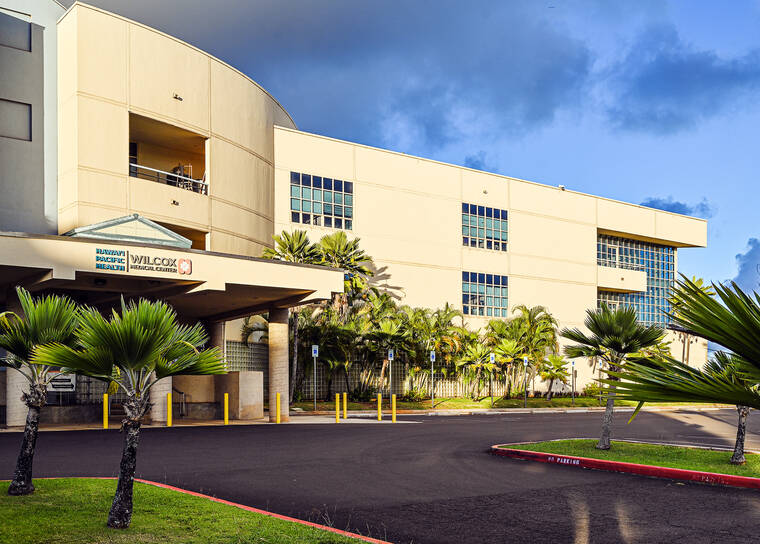HONOLULU — Wilcox Medical Center joins Pali Momi Medical Center and Straub Medical Center as being among 78 American College of Surgeons National Surgical Quality Improvement Program participating adult hospitals to have achieved meritorious outcomes for surgical patient care in 2021, states a release from Hawai‘i Pacific Health.
“It is an honor to be recognized by the ACS for our medical center’s commitment to surgical excellence,” said Jen Chahanovich, president and CEO of Wilcox Medical Center and CEO of Kaua‘i Medical Clinic.
“This national distinction validates Hawai‘i Pacific Health’s mission to create a healthier Hawai‘i by continually evaluating and refining practices to enhance patient care.”
The ACS NSQIP recognition program commends a select group of hospitals for achieving a meritorious composite score in either an “All Cases” category, or a category that includes only “High Risk” cases. Risk-adjusted data from the July 2022 ACS NSQIP Semiannual Report, which presents data from the 2021 calendar year, were used to determine which hospitals demonstrated meritorious outcomes.
Wilcox was recognized on the “All Cases” meritorious list. Pali Momi and Straub were recognized on both the “All Cases” and “High Risk” categories.
“This achievement demonstrates the commitment our physicians, nurses and medical staff make to provide patients quality, data-driven surgical care,” said Dave Underringer, the HPH executive president of O‘ahu operations and CEO of Kapi‘olani Medical Center for Women &Children, Pali Momi Medical Center and Straub Medical Center.
As participants in ACS NSQIP, Pali Momi, Straub and Wilcox are required to track the outcomes of inpatient and outpatient surgical procedures, and collect data that assesses patient safety and can be used to direct improvement in the quality of surgical care.
Each composite score was determined through a different weighted formula combining eight outcomes. The outcome performances related to patient management were in the following eight clinical areas: mortality, unplanned intubation, ventilator use for more than 48 hours, renal failure, cardiac incidents including cardiac arrest and myocardial infarction, pneumonia, surgical site infection including surficial incisional SSI, deep incisional SSI and organ-space SSIs, and urinary tract infection.
These scores were used to determine which hospitals demonstrated meritorious outcomes that included 40 hospitals recognized in both the “All Cases” and “High Risk” lists, 21 hospitals being on the “All Cases” list only, and 21 hospitals are on the “High Risk” list only.
The meritorious hospitals represent approximately 10 percent of the 607 ACS NSQIP eligible hospitals.
ACS NSQIP is the only nationally validated quality improvement program that measures and ensures the care of surgical patients. This program measures the actual surgical results 30 days postoperatively, as well as risk adjusts patient characteristics to compensate for differences among patient populations and acuity levels.
The goal of ACS NSQIP is to reduce surgical morbidity, or infection or illness related to a surgical procedure, and surgical mortality, or death related to a surgical procedure, and to provide a firm foundation for surgeons to apply what is known as the “best scientific evidence” to the practice of surgery.
When adverse effects from surgical procedure are reduced and/or eliminated, a reduction in health care costs follow.
ACS NSQIP is a major program of the American College of Surgeons and is currently used in nearly 850 adult and pediatric hospitals.
•••
Dennis Fujimoto, staff writer and photographer, can be reached at 808-245-0453 or dfujimoto@thegardenisland.com.


